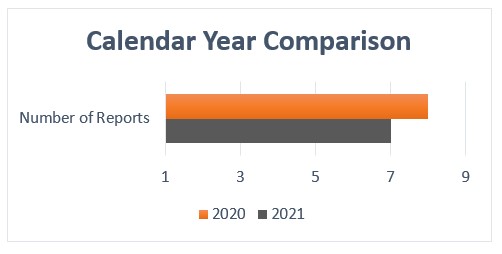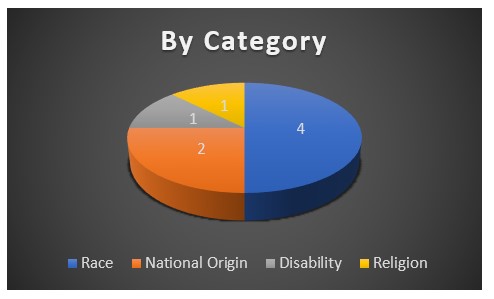Overview
In its third year, the Bias Data Gathering System (BDGS) continues to seek to support members of the Kalamazoo College community by providing an online mechanism for community members to submit reports of bias related incidents Through gathering information about the incidents and nature of bias experienced by K community members on campus, K can offer care and support to those harmed, discern patterns, and determine strategies that may minimize the likelihood of future harm. Strategies for minimizing the likelihood of future harm include educational meetings with students; professional development for staff and faculty; restorative conversations; bias prevention training; and policy initiatives. Additionally, when a reported incident may involve violations of a K policy, such as reported discrimination based upon a protected category as outlined in K’s Nondiscrimination Policy, K requires that the report be referred to the appropriate office for consideration.
The BDGS is overseen by the Bias Incident Response Team (BIRT): J. Malcolm Smith, VP for Student Development and Dean of Students/Student Conduct; Danette Ifert Johnson, Provost; and Renee Boelcke, Associate Vice President for Human Resources. Since its inception, BIRT has sought continuous improvement of BDGS, including displaying the BDGS link in the banner on many campus web pages and encouraging faculty to include information about BDGS in their syllabi.
Each year, BIRT compiles a BDGS Annual Report that includes bias related incident reports submitted through BDGS between January 1 and December 31. The following report is for the time period January 1, 2021 through December 31, 2021.
Bias Definition
Bias refers to a preconceived negative preference, inclination, or attitude about groups of people, often based on physical, cultural, religious, or social identities. The term ‘bias related incident’ refers to language and/or behaviors that demonstrate bias against persons because of, but not limited to, their actual or perceived identities. Examples may include defacement of posters or signs, intimidating comments or messages, vandalism to personal or college property, or similar acts, if there is evidence that the target or victim was chosen because of a characteristic such as those listed above.
It is equally important to know what ‘bias related incident’ does not refer to. K values freedom of expression and the open exchange of ideas. Intellectual academic discourse often involves the expression of controversial ideas and differing views. To that end, BDGS does not prohibit speech historically and currently protected by College policies. Although an expression of an idea or point of view may be offensive or inflammatory to some, it is not necessarily a bias-related incident.
Aggregate Data Review
The information contained in this report refers to bias related incident reports submitted to BDGS through its online form between January 1, 2021 and December 31, 2021 and may not capture bias-related incidents reported through other College systems. BIRT also acknowledges that BDGS reports do not encompass all bias related incidents that may have occurred on campus as underreporting is likely. Additionally, this report is presented in aggregate form to protect the privacy of those involved. FN1

During calendar year 2021, seven (7) bias related incident reports were submitted to BDGS. Two (2) of the reports concerned the same reported bias related incident. Three (3) of the reports involved messages posted via social media apps or in group chat messages. Of the reports submitted during 2021, all seven (7) were actionable in that the reporters provided their names and contact information for additional follow-up. By comparison, in 2020, only five (5) reports contained the reporter’s name and contact information and as such, BIRT was not able to conduct caring outreach or additional follow-up on several of the reports due to this lack of information. The following bar chart is a visual representation comparing the number of reports in 2020 (8 reports) compared to 2021 (7 reports).
The category types of bias related incidents reported were race (4 instances), national origin (2 instances), disability (1 instance), and religion (1 instance). The pie chart below is a visual representation of the number of each type of category involved in the reported bias-related incidents. FN2
The status of those reporting and those reported in 2021 bias incident reports were similar to 2020. In 2021, all identifiable reports to the BDGS were submitted by students and faculty, and reported behavior on the part of students, faculty, and staff members.

While the purpose of the Bias Data Gathering System is to collect information about the reported incidence and nature of bias on campus, BIRT carefully reviewed each report and responded to persons involved with caring outreach and/or other follow-up. Responses included supportive meetings, educational meetings, and referrals to existing processes where appropriate.
Conclusion
The Kalamazoo College community is committed to eradicating bias related incidents on campus as part of our mission to better understand, live successfully within, and provide enlightened leadership to an increasingly complex world. The Bias Data Gathering System is an important tool in this effort. BDGS, including subsequent follow-ups with reporters and others and outcomes thereof, informs the ongoing work of the Offices of Human Resources, the Provost, and Student Development. This work includes supportive responses to specific reports as well as broader planning for educational, professional development, and policy initiatives that support rigorous intellectual academic discourse in a supportive learning and work environment free from bias related incidences.
Sincerely,
Renee Boelcke, Director of Human Resources
Danette Ifert Johnson, Provost
J. Malcolm Smith, VP for Student Development and Dean of Students
Contact Renee at renee.boelcke@kzoo.edu to receive a printed copy of this report.
Footnotes
(1): In 2019, there were no bias related incidents reported. Significantly, in 2019, BDGS was only a year old when the pandemic began and stay at home orders were enacted due to the pandemic.
(2): Given the substance of one particular bias related incident report, involvement of international students were categorized within national origin and race categories for purposes of this report.
